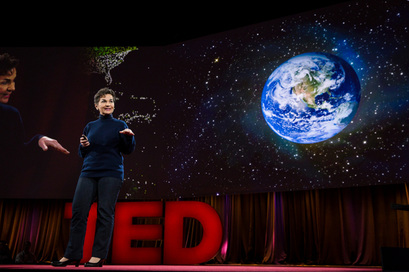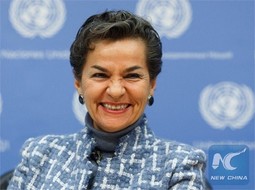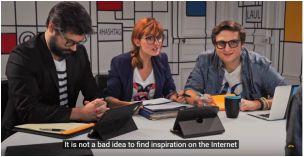Alice Henderson: Anger and Optimism Approaching COP 22 (a lesson in complex reaction kinetics)17/8/2016 As a Resident Assistant in a university international residence hall this past spring semester, I found myself hosting a discussion of the November Paris Climate Change Conference, the 21st Conference of Parties (COP 21) of the United Nations Framework Convention on Climate Change (UNFCC). During this discussion of articles related to COP 21, I was simultaneously surprised and intrigued by the variety of strong emotions expressed by my peers and faculty members ranging from anger to discouragement and frustration to optimism and hope. The way people think is extremely relevant towards the actions they take. As such, emotions engaged and presented as we move closer to COP 22 are important to consider. Similarly, in chemistry, we analyze how reactions happen and what factors affect the rates at which they occur as described by reaction kinetics. As this post’s title suggests, the development of international climate policy presents much more complex kinetics than the first and second order reactions you might encounter in an introductory course. After a particularly discouraging comment towards the end of my discussion, I closed our coffee hour with a humorous yet persuasive YouTube video “Break The Internet – Nicholas Hulot” by Golden Moustache, a French comedy channel. In the video, French environmentalist Nicholas Hulot meets with a team of three internet outreach experts to determine the best way to advertise his petition, an effort for public mobilization leading up to COP 21. The team suggests several options including a dramatic scene with Hulot rising from the dark to save the planet, two young men making fart jokes, a viral cat video with Hulot’s face inserted, and a version of the video game Streetfighter where Hulot’s character pulls out a petition instead of ammunition. The final version, against the media team’s better judgement, is a simple, inspirational message “à l’Américain” or “in the American way.” However, almost more satisfying to me was the violent and borderline profane sketch where the actor smashes a globe with a baseball bat out of sheer fury at public inaction.  YouTuber Hank Green "Pissed Off for a Better World" YouTuber Hank Green "Pissed Off for a Better World" The anger expressed in this mini sketch relates to the anger many environmental activists and supporters feel in the face of snail-paced international action and the seeming apathy of both leaders and the public. In similar fashion, YouTube star and singer/songwriter Hank Green encouraged viewers to get angry regarding the 2030 UN Global Goals- not because the goals aren’t good goals but because we still have so far to go towards achieving them. He shouts at the camera “…if you do care, then you kind of definitionally have to be angry! Because it’s infuriating!” While polite society often tries to limit and suppress angry sentiments, Green argues that anger can be useful way to engage people in important issues. However, as I reflect on my coffee hour discussion, the problem with anger is that it can be exhausting to those expressing it as well as those to whom the anger is expressed. Furthermore, exhaustion often leads to discouragement and hopelessness as was expressed by a faculty member at my discussion who had little faith in the international actions against climate change …if you do care, then you kind of definitionally have to be angry! Because it’s infuriating! - Hank Green  Christiana Figueres at TED 2016 Christiana Figueres at TED 2016 Surprisingly, I learned that the Executive Secretary of the United Nations Framework Convention on Climate Change (UNFCCC) Christiana Figueres herself had little faith in the international processes in place when she first accepted her position. At the 2016 TED conference (Technology, Entertainment, and Design: a nonprofit devoted to spreading ideas through short, powerful talks), Figueres recounts her first press conference as the Executive Secretary when asked if she thought a climate change agreement was possible and she responded, “Not in my lifetime.” Figueres continues to describe how she shifted her attitude, her emotional processing of diplomatic negotiations in order to motivate global leaders. In her talk she adamantly argues that “There is no way you can deliver victory without optimism.” Optimism, hope and courage are all powerful motivators that impacted the outcomes of COP 21 according to Figueres. However, looking forward to COP22, it is also clear that this cannot blind us to the size of the task ahead. Figueres closes her talk, “We’ve only just started our work on climate change… But I do believe that we have come, over the past six years, from the impossible to the now unstoppable." While the slow pace of negotiations is most definitely worthy of anger, without optimism the sustained action and cooperation necessary will never be achieved; and while anger can be exhausting, it too can be a useful motivator and is an important component in our hypothetical chemical reaction of international government action on climate change. We’ve only just started our work on climate change… But I do believe that we have come, over the past six years, from the impossible to the now unstoppable. - Christiana Figueres Sources:
0 Comments
Leave a Reply. |
Categories
All
Archives
March 2024
|




 RSS Feed
RSS Feed
